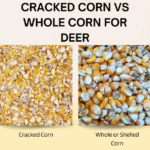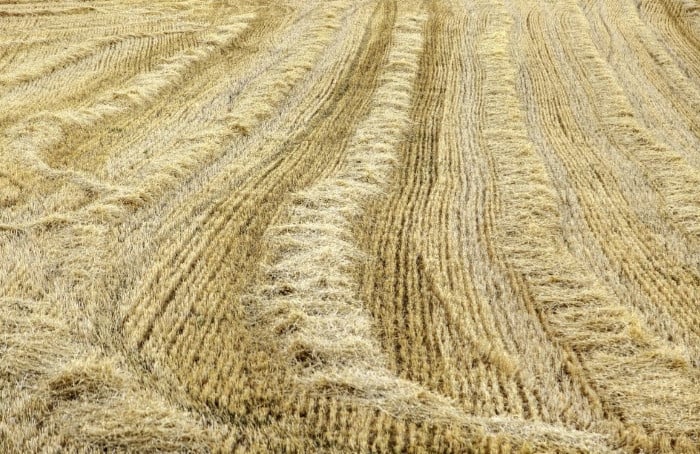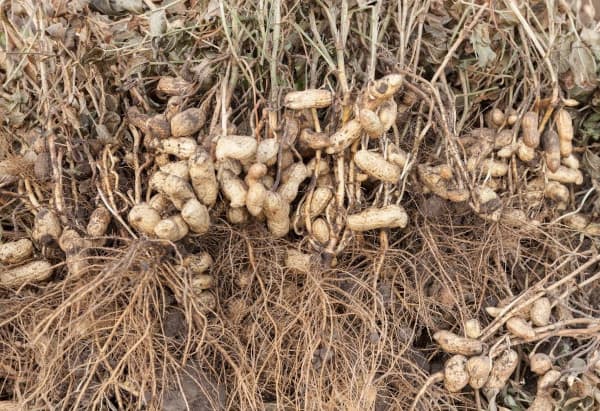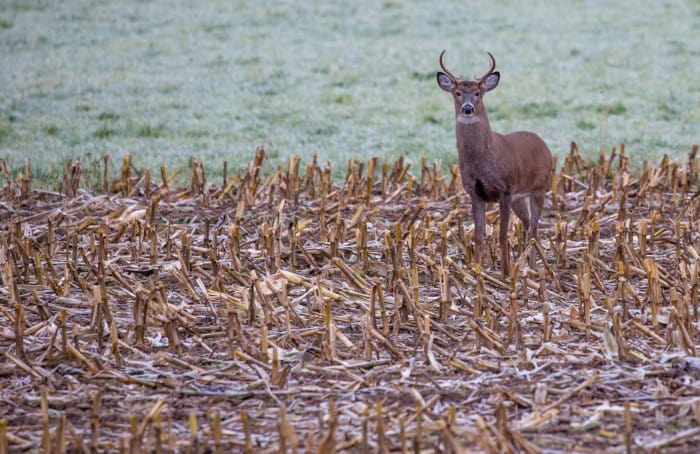Like I’ve mentioned in other places on this website, I get asked many questions about what one can and cannot feed deer at my day job. I recently entered into a conversation about deer eating lettuce, so I thought it might make sense to put some of the contents of that discussion on paper.
The question asked was: do deer eat lettuce? The short answer is yes, but there’s more to the topic, as their love of lettuce often puts whitetails at odds with home gardeners who are trying to protect their crops.
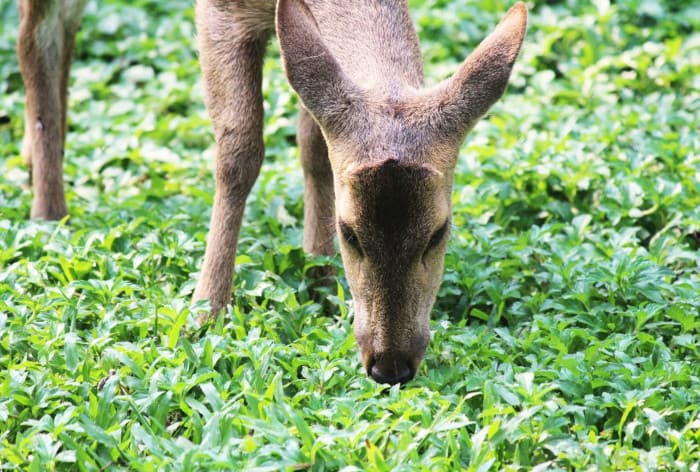
Key Points
– Lettuce is a favorite food for deer; they can destroy a lettuce crop overnight.
– Building a deer proof fence that is at least 8 feet tall is the most effective way to protect lettuce from deer.
– Mixing lettuce with deer repellent plants like onions, garlic, and chives can confuse deer and deter them from eating it.
– Alternatives to fencing, such as temporary wire cloches and planting containers of lettuce near the house, can also help protect lettuce from deer
Wild Lettuce vs Commercially Grown Lettuce
It’s also worth noting that deer may have access to the following two types of lettuce variants:
Wild Lettuce
There is a species of lettuce that grows in the wild, which is also a favorite among deer. That species is called Latuca, and it has almost 50 sub-species of wild lettuce that grow worldwide. There are 22 known species of wild lettuce that grow in North America.
However, wild lettuce tends to grow in small patches, and deer will eat this leafy green species of lettuce to the ground as soon as it’s located. This behavior typically kills the plant, so wild lettuce typically offers a smaller volume of food compared to commercially grown lettuce.
I have come across some data online reporting that lettuce is not a natural food source for deer, but that isn’t entirely accurate.
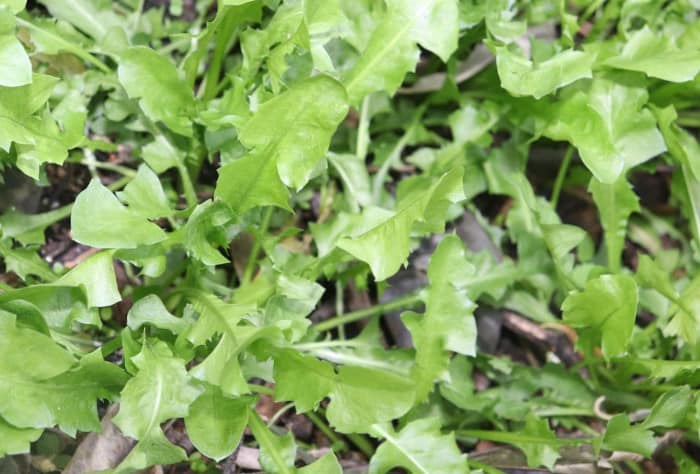
Commercially Grown Lettuce
Lettuce is a favorite among home gardeners and is also a major commercial crop in the vegetable industry. Some examples of popular lettuce sub-species grown commercially and in gardens include:
- Iceberg
- Romaine
- Arugula
- Escarole
The two most popular sub-species most commonly fed to deer are iceberg lettuce and romaine lettuce.
Since whitetail deer love lettuce, there’s a good chance they will locate these crops and try to consume as much as possible.
Commercial lettuce grown for human consumption is acceptable for deer to eat, and they enjoy the high water content, especially during drought conditions.
Wild Deer and Lettuce
Wild deer have a particular fondness for tender plants with soft juicy leaves, and lettuce ranks high on their list of preferred plants. When it comes to deer behavior, they are attracted to the succulent leaves of lettuce, which makes it a target in gardens and homesteads.
Whitetails will eat the entire plant, including the lettuce leaves and plant stalk.
Although there isn’t much information available about any potential complications from consuming lettuce, it appears that lettuce is safe for whitetails to eat.
The one caveat would be lettuce in a garden that has been treated with pesticides to deter insects. The pesticide could potentially be an issue for deer, but there are several variables that come into play. For example, what pesticide was involved, how much of the pesticide was consumed, how large the deer was, etc. Those variables could play a role in any adverse impacts on the deer.
Protecting Lettuce from Deer
Implementing effective measures to deter deer from accessing a lettuce crop is crucial for ensuring a successful harvest. There are various deer repellent methods that can be employed to protect lettuce crops and keep deer out of your garden.
One option is to build a deer-proof fence at least 8-10 feet tall, which can effectively keep deer out of the garden. I generally suggest going with a 10-foot-high fence, as it’s pretty darn impressive how high a deer can jump.
Another alternative is to create a physical barrier of rocks around the lettuce plants, as deer may be hesitant to cross such obstacles. Additionally, mixing lettuce with deer repellent plants like onions, garlic, and chives can confuse deer and make them less likely to target the lettuce in your garden.
Temporary wire cloches or planting containers of lettuce near the house can also provide protection. Overall, a combination of these methods can help safeguard lettuce from deer and ensure a bountiful harvest.
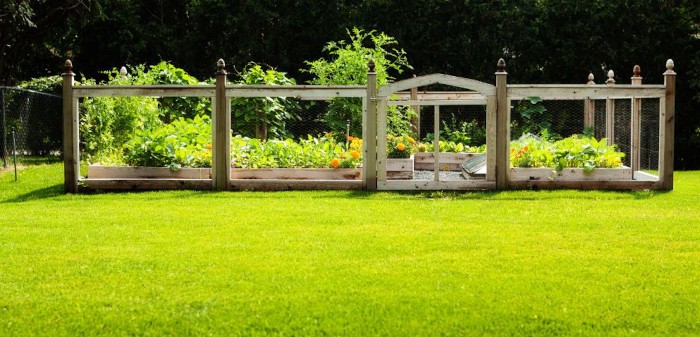
Frequently Asked Questions
Here are some commonly asked questions associated with deer consuming lettuce:
Are there any natural deer deterrent alternatives to fencing that can protect lettuce from deer?
Natural deer resistant deterrents such as planting repellent plants can help keep the deer from eating lettuce. Mixing lettuce with plants like onions, garlic, and chives can confuse deer and make the crop less appealing. The smell from those plants is strong and may help drive the whitetails away.
What are some other vegetables that deer tend to avoid?
Even hungry deer do not like vegetables with spiky or prickly leaves, such as cucumbers, eggplant, and zucchini. Root vegetables are also less appealing to deer. Planting a variety of these deer-resistant vegetables can help protect your garden.
How can I protect my lettuce crop from deer in an urban environment?
In urban gardening, protecting lettuce from deer can be achieved through alternative methods. These include building fences or using electric fencing, creating boundaries with rocks, planting lettuce with deer-repellent plants, or using temporary wire cloches and planting containers near the house.
Is it safe to feed deer store-bought lettuce?
Deer love to eat most species of store bought lettuce. As long as the lettuce has been thoroughly washed and is pesticide free, it should be fine to feed the local deer.
Do deer like to eat romaine lettuce?
In my experience, whitetails love romaine lettuce.
Can I feed lettuce to deer?
While deer do like to eat lettuce, it is not recommended to intentionally feed it to them. Feeding wildlife can disrupt their natural diet and behavior patterns.
Is lettuce good for deer?
Currently, there does not seem to be any data indicating that lettuce is harmful to deer.
Will deer eat other vegetables besides lettuce?
Whitetail deer can eat almost anything when they are hungry, including other vegetables and plants in your garden or crops. They may also be attracted to certain types of vegetables more than others.
How can I keep deer away from my garden?
Aside from using physical barriers and repellents, you can try planting deer-resistant plants, using scare devices such as motion-activated sprinklers or noise makers, and keeping your garden well-maintained and free of debris that could attract deer.


